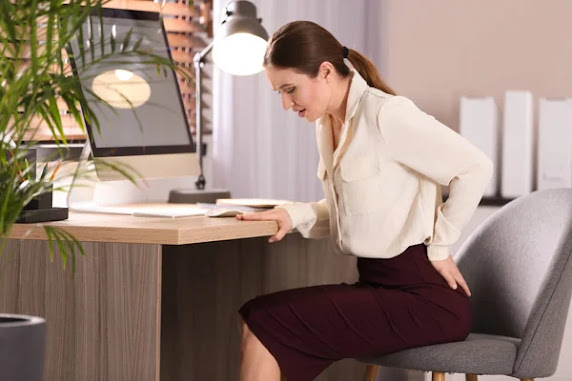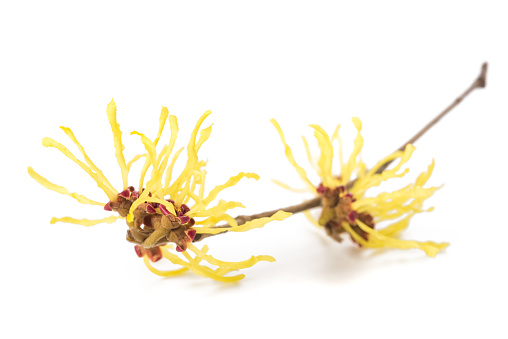Ayurvedic Home Remedies For Piles
Note: Friends, if you are comfortable in reading this article in any other language, please change the language from the translate button on the top right corner of this article.
 |
| Piles, also known as hemorrhoids, are swollen veins in the anal canal and lower rectum |
Overview
Symptoms Of Piles
The symptoms of piles (hemorrhoids) can vary depending on the type and severity of the condition.
Some people with piles may not experience any symptoms, while others may experience one or more of the following:
Pain or discomfort:
This can occur during bowel movements or when sitting or standing for extended periods.
Itching:
The skin around the anus may become itchy or irritated.
Bleeding:
Bright red blood may be seen on the toilet paper or in the toilet bowl after bowel movements.
Swelling or lumps:
Hemorrhoids can cause a lump or swelling around the anus.
Leakage of feces:
This can occur if the hemorrhoid is large enough to obstruct the anal opening.
Mucus discharge:
A clear or yellowish discharge from the anus may be present.
Inflammation:
Hemorrhoids may become swollen and inflamed, which can lead to discomfort, pain, and itching.
Thrombosis:
Sometimes, blood clots can form in external hemorrhoids, causing severe pain and swelling around the anus.
Protrusion:
Prolapsed hemorrhoids can bulge out of the anus, making them visible and palpable.
Inability to pass stool:
In rare cases, large hemorrhoids can block the anal canal, making it difficult or impossible to pass stool.
It's important to note that some of these symptoms can also be associated with other conditions, such as anal fissures or rectal cancer.
Therefore, it's crucial to seek medical attention if you experience any of these symptoms to rule out other potential causes and to receive a proper diagnosis and treatment.
Primary causes of piles
The primary causes of piles, also known as hemorrhoids, can include:
Straining during bowel movements:
This is one of the most common causes of piles. Straining puts pressure on the veins in the anal area, leading to the development of hemorrhoids.
Chronic constipation:
Constipation can cause hard, dry stools that are difficult to pass, leading to straining during bowel movements and putting pressure on the veins in the anal area.
Pregnancy:
Hemorrhoids are common during pregnancy due to increased pressure on the veins in the pelvic area and hormonal changes.
Obesity:
Being overweight or obese can increase the risk of developing piles, as excess weight can put pressure on the veins in the anal area.
Prolonged sitting or standing:
Sitting or standing for extended periods can cause blood to pool in the veins, increasing the risk of hemorrhoids.
Aging:
As people age, the tissues in the anal area may become weaker, increasing the risk of hemorrhoids.
Genetics:
Some people may be more susceptible to developing piles due to genetic factors.
In addition to the primary causes mentioned earlier, other factors can increase the risk of developing piles. These include:
A low-fiber diet:
A diet that is low in fiber can cause constipation, which can increase the risk of hemorrhoids.
Fiber helps soften stool and make it easier to pass, reducing the need to strain during bowel movements.
Diarrhea:
Chronic diarrhea can also increase the risk of piles, as it can irritate the anal area and cause inflammation and swelling.
Certain medical conditions:
Conditions such as liver disease and inflammatory bowel disease (IBD) can increase the risk of developing hemorrhoids.
Anal intercourse:
Receptive anal intercourse can cause trauma to the anal area, leading to the development of piles.
Lifting heavy objects:
Heavy lifting can put pressure on the veins in the anal area, increasing the risk of hemorrhoids.
It's important to note that while some of these risk factors can be managed through lifestyle changes, others may require medical intervention.
Some of these causes can be prevented or managed through
- lifestyle changes, such as maintaining a healthy weight
- increasing fiber intake
- staying hydrated, and
- taking regular breaks from sitting or standing.
Home Remedies For Piles Or Hemorrhoids:
Please see the above video for reference.
- Piles may be caused by constipation, unhealthy diet, family history, obesity, or lack of exercise.
- Symptoms are cushions and swellings of different sizes inside and around the anus with pain or bleeding.
- They generally disappear on their own but sometimes surgery is required to remove piles.
- Apply ice-pack directly on the affected area for 10 minutes several times a day.
- Mix 2 spoons of Caster Oil or Olive Oil or Almond Oil in milk in milk and drink every night. Also, apply this to the affected area.
- Also consume 2 spoons of Triphala Powder (description of Triphala is given below) in warm water with warm water every night before going to bed.
- Always use Heeng (Asafoetida) in vegetables or take it by dissolving it in water.
- Avoid heavy, spicy, or fried foods for dinner. Eat food that reduces constipation.
- Drink 8-10 glasses of water daily to avoid constipation and improve the digestive system.
Our Other Must-Read Articles:
Some more Home Remedies for Piles:
Here are some more ayurvedic remedies that may help manage the symptoms of piles:
Triphala:
Triphala is an Ayurvedic remedy made from a combination of three fruits - amla, haritaki, and bibhitaki.
It is believed to help improve digestion and relieve constipation, which can help prevent hemorrhoids.
You can take Triphala powder or tablets, or prepare a tea by boiling Triphala in water and drinking it.
Buttermilk:
 |
| Buttermilk is a fermented dairy product that is rich in probiotics |
Buttermilk is a fermented dairy product that is rich in probiotics, which can help improve digestion and prevent constipation. Drinking buttermilk regularly can help prevent piles and improve symptoms.
Psyllium husk:
 |
Psyllium husk (Indian name Isabgole) is a natural source of fiber that can help soften stool and prevent constipation |
Psyllium husk (Indian name Isabgole) is a natural source of fiber that can help soften stool and prevent constipation. You can take psyllium husk powder with water or mix it with milk or food.
Indian gooseberry:
Indian gooseberry, also known as amla, is a fruit that is rich in vitamin C and antioxidants.
It is believed to help improve digestion and prevent constipation, which can help prevent hemorrhoids. You can eat fresh Indian gooseberries or take amla powder or capsules.
Coconut oil:
Coconut oil is a natural anti-inflammatory and can help relieve inflammation and swelling associated with piles.
You can apply coconut oil to the affected area or mix it with aloe vera gel.
Fiber:
Eating a high-fiber diet can help prevent constipation and reduce straining during bowel movements, which can lead to hemorrhoids.
Good sources of fiber include whole grains, fruits, vegetables, beans, and legumes.
Fluids:
Drinking plenty of fluids can help soften stool and prevent constipation, which can reduce the risk of hemorrhoids. Aim for at least 8 glasses of water a day.
Sitz baths:
Soaking the anal area in warm water for 10-15 minutes several times a day can help relieve itching, discomfort, and inflammation.
Ice packs:
Applying an ice pack to the anal area for 10-15 minutes several times a day can help reduce swelling and discomfort.
Witch hazel:
 |
Applying witch hazel to the anal area can help relieve itching, burning, and inflammation. |
Applying witch hazel (available online in liquid form) to the anal area can help relieve itching, burning, and inflammation.
Aloe vera:
Applying aloe vera gel to the anal area can help reduce swelling and inflammation.
Exercise:
Regular exercise can help improve digestion and reduce the risk of constipation, which can help prevent hemorrhoids.
Good hygiene:
Keeping the anal area clean and dry can help prevent infection and reduce discomfort.
It's important to note that ayurvedic remedies should be used under the guidance of a qualified Ayurvedic practitioner, especially if you are taking any medications or have any other medical conditions.
It's also important to seek medical attention if your symptoms are severe or do not improve with home remedies or Ayurvedic remedies.
These remedies may or may not cure hemorrhoids, but they can help manage symptoms and improve overall comfort.
These remedies should not replace medical treatment if you are experiencing severe symptoms.
Frequently asked questions on piles or hemorrhoids:
Here are some frequently asked questions and answers about piles:
Q: What are piles?
A: Piles, also known as hemorrhoids, are swollen veins in the anal area. They can be internal or external and can cause symptoms such as itching, pain, bleeding, and discomfort.
Q: What are the causes of piles?
A: The primary causes of piles include chronic constipation, diarrhea, straining during bowel movements, pregnancy, obesity, aging, genetics, sedentary lifestyle, and anal intercourse.
Q: How can I prevent piles?
A: You can prevent piles by maintaining a healthy weight, eating a high-fiber diet, drinking plenty of fluids, taking regular breaks from sitting or standing, and practicing good hygiene.
Q: What are the treatment options for piles?
A: Treatment options for piles include over-the-counter creams and ointments, prescription medications, rubber band ligation, infrared coagulation, sclerotherapy, and surgery.
Q: When should I see a doctor for piles?
A: You should see a doctor for piles if your symptoms are severe, do not improve with home remedies, or include bleeding, discharge, or changes in bowel habits.
You should also seek medical attention if you have a family history of colorectal cancer or if you are over the age of 50 and have not had a colonoscopy.
Q: Can piles be cured?
A: While there is no cure for piles, they can be managed with treatment and lifestyle changes.
It's important to seek medical attention if you have symptoms of piles to prevent complications and improve your quality of life.
Q: Can piles cause cancer?
A: Piles themselves do not cause cancer, but some of the symptoms of piles, such as bleeding or changes in bowel habits, can be signs of more serious conditions such as colorectal cancer.
If you have any concerns about your symptoms, it's important to see a doctor for evaluation.
Q: Are there any complications associated with piles?
A: Complications of piles can include thrombosis, where a blood clot forms in the external hemorrhoid, which can be painful and require medical treatment.
Piles can also cause anemia due to chronic bleeding, and chronic piles can cause skin tags or fistulas, which are small openings near the anus that can become infected.
Q: Can piles go away on their own?
A: In some cases, piles may go away on their own without treatment.
However, it's important to practice good hygiene and make lifestyle changes to prevent the condition from worsening or recurring.
If your symptoms are severe or persistent, it's important to see a doctor for evaluation and treatment.
Q: Can pregnancy cause piles?
A: Yes, pregnancy can increase the risk of developing piles due to the increased pressure on the veins in the lower abdomen and pelvis.
Hormonal changes during pregnancy can also affect the blood vessels and increase the risk of constipation, which can contribute to the development of piles.
Q: Can exercise help prevent piles?
A: Yes, regular exercise can help prevent piles by improving circulation, preventing constipation, and reducing the risk of obesity.
It's important to engage in low-impact exercises, such as walking or swimming and avoid high-impact activities that can strain the pelvic area.
Q: Can I use over-the-counter creams for piles?
A: Yes, over-the-counter creams and ointments, such as hydrocortisone or lidocaine, can help relieve the symptoms of piles.
However, it's important to follow the instructions on the packaging and not use these products for more than a few days, as they can cause skin thinning or irritation.
If your symptoms persist or worsen, it's important to see a doctor for evaluation and treatment.

Comments
Post a Comment